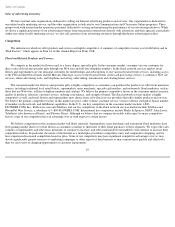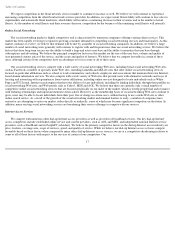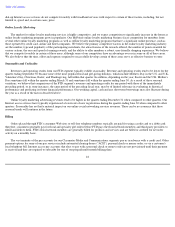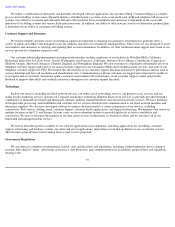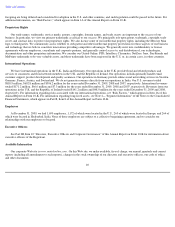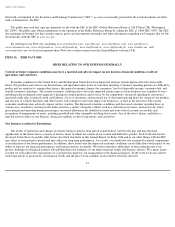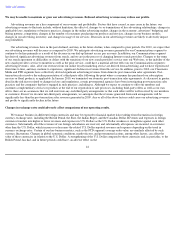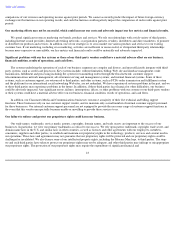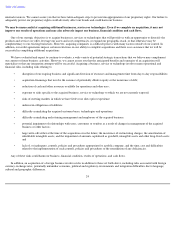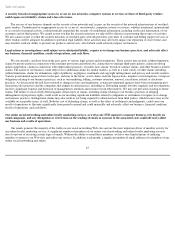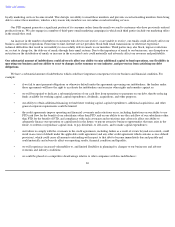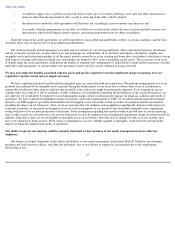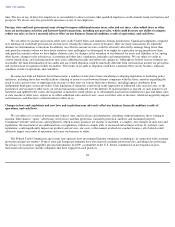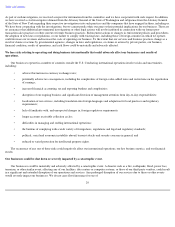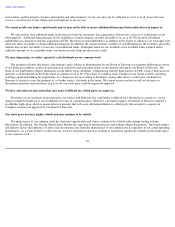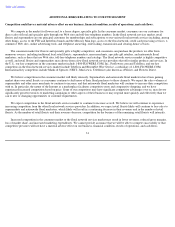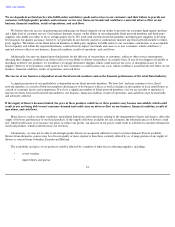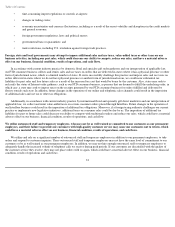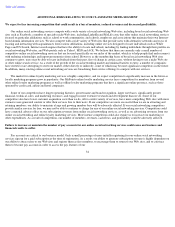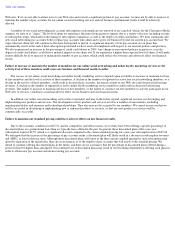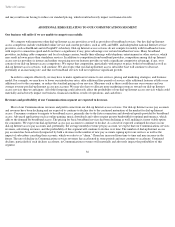Classmates.com 2009 Annual Report Download - page 27
Download and view the complete annual report
Please find page 27 of the 2009 Classmates.com annual report below. You can navigate through the pages in the report by either clicking on the pages listed below, or by using the keyword search tool below to find specific information within the annual report.
Table of Contents
loyalty marketing services become invalid. This disrupts our ability to email these members and prevents social networking members from being
able to contact these members, which is a key reason why members use our online social networking services.
Our FTD segment generates a significant portion of its consumer orders from the emails we send to customers who have previously ordered
products from us. We also engage in a number of third-
party email marketing campaigns in which such third parties include our marketing offers
in the emails they send.
An increase in the number of members or customers who elect to not receive, or are unable to receive, our emails could adversely affect our
business and results of operations. From time to time, Internet service providers block bulk email transmissions or otherwise experience
technical difficulties that result in our inability to successfully deliver emails to our members. Third parties may also block, impose restrictions
on, or start to charge for, the delivery of emails through their email systems. Due to the importance of email to our businesses, any disruption or
restriction on the distribution of emails or increase in the associated costs could materially and adversely affect our revenues and profitability.
Our substantial amount of indebtedness could adversely affect our ability to raise additional capital to fund operations, our flexibility in
operating our business and our ability to react to changes in the economy or our industry, and prevent us from satisfying our debt
obligations.
We have a substantial amount of indebtedness which could have important consequences for our business and financial condition. For
example:
• if we fail to meet payment obligations or otherwise default under the agreements governing our indebtedness, the lenders under
those agreements will have the right to accelerate the indebtedness and exercise other rights and remedies against us;
•
we will be required to dedicate a substantial portion of our cash flow from operations to payments on our debt, thereby reducing
funds available for working capital, capital expenditures, dividends, acquisitions, and other purposes;
• our ability to obtain additional financing to fund future working capital, capital expenditures, additional acquisitions, and other
general corporate requirements could be limited;
• the credit agreements impose operating and financial covenants and restrictions on us, including limitations on our ability to use
FTD cash flow for the benefit of our subsidiaries other than FTD, and on our ability to use the cash flow of our subsidiaries other
than FTD for the benefit of FTD, and compliance with such covenants and restrictions may adversely affect our ability to
adequately finance our operations or capital needs in the future, to pursue attractive business opportunities that may arise in the
future, to redeem or repurchase capital stock, to pay dividends, to sell assets, and to make capital expenditures;
•
our failure to comply with the covenants in the credit agreements, including failure as a result of events beyond our control, could
result in an event of default under the applicable credit agreement (and any other credit agreement which contains a cross-default
provision), which could cause all amounts outstanding with respect to that debt to become immediately due and payable and
could materially and adversely affect our operating results, financial condition and liquidity;
• we will experience increased vulnerability to, and limited flexibility in planning for, changes to our businesses and adverse
economic and industry conditions;
•
we could be placed at a competitive disadvantage relative to other companies with less indebtedness;
26


